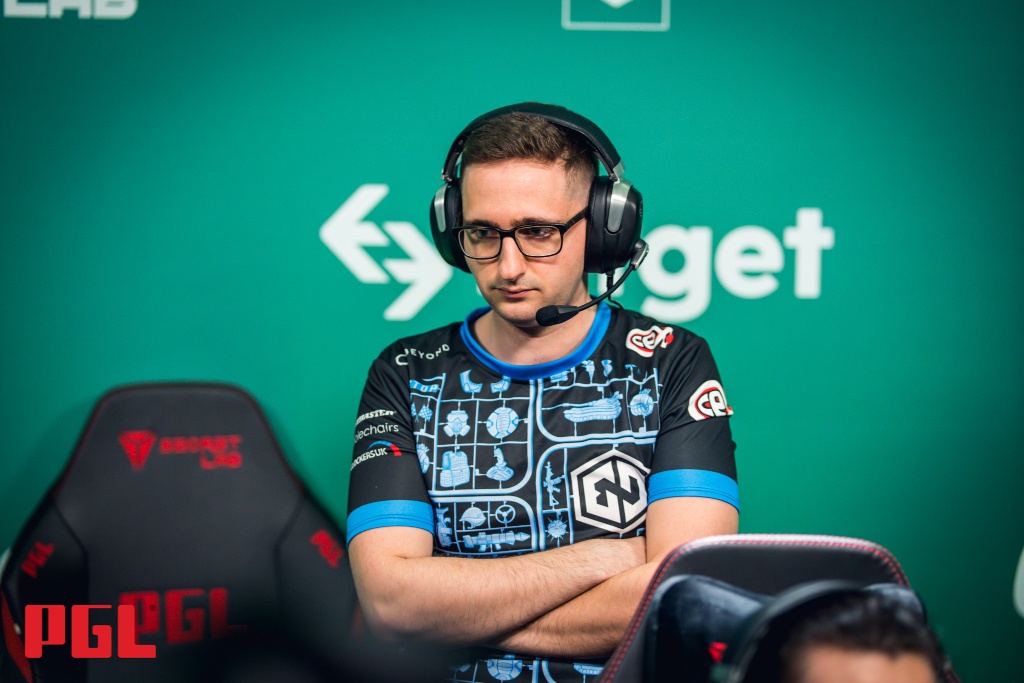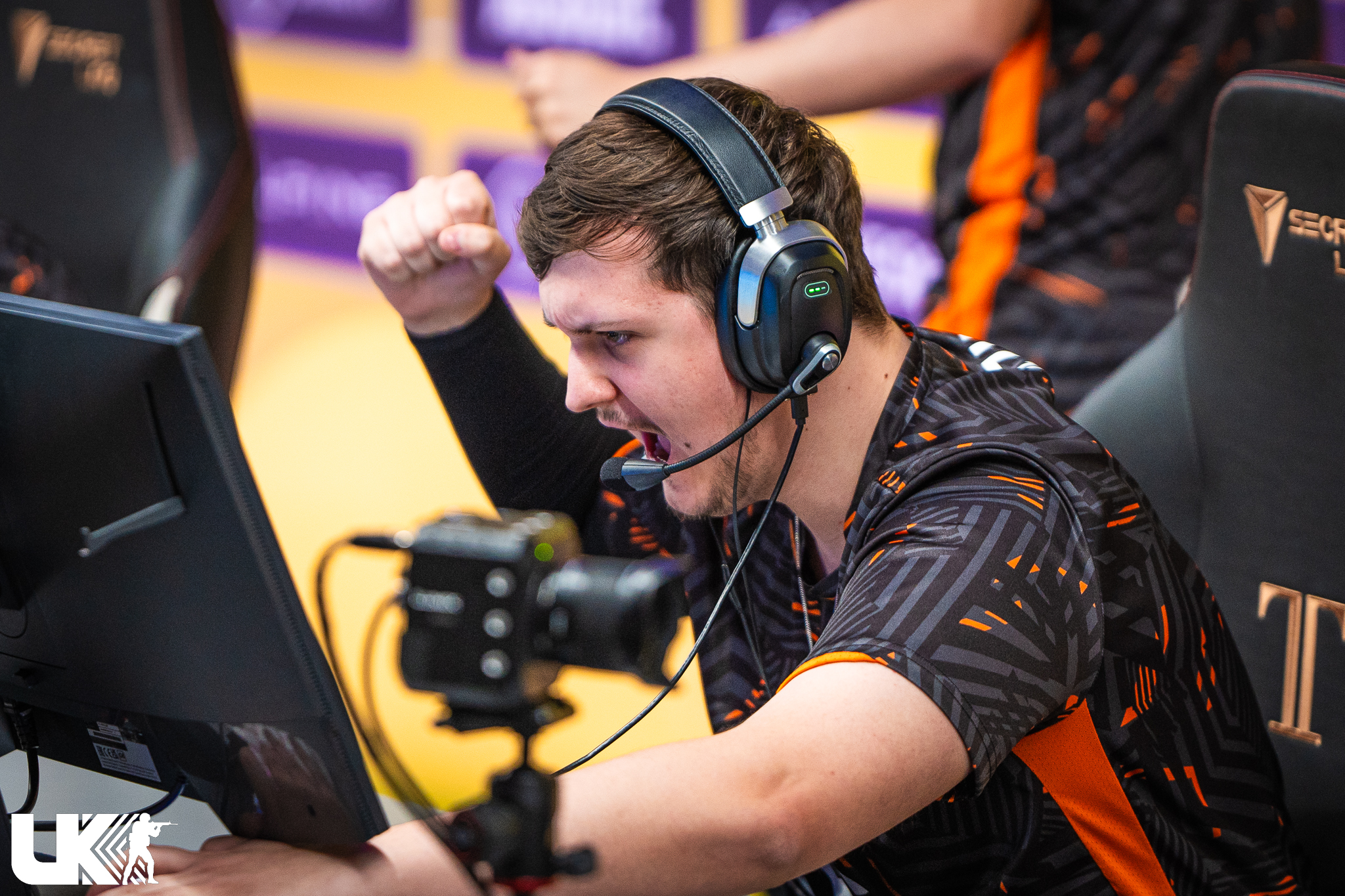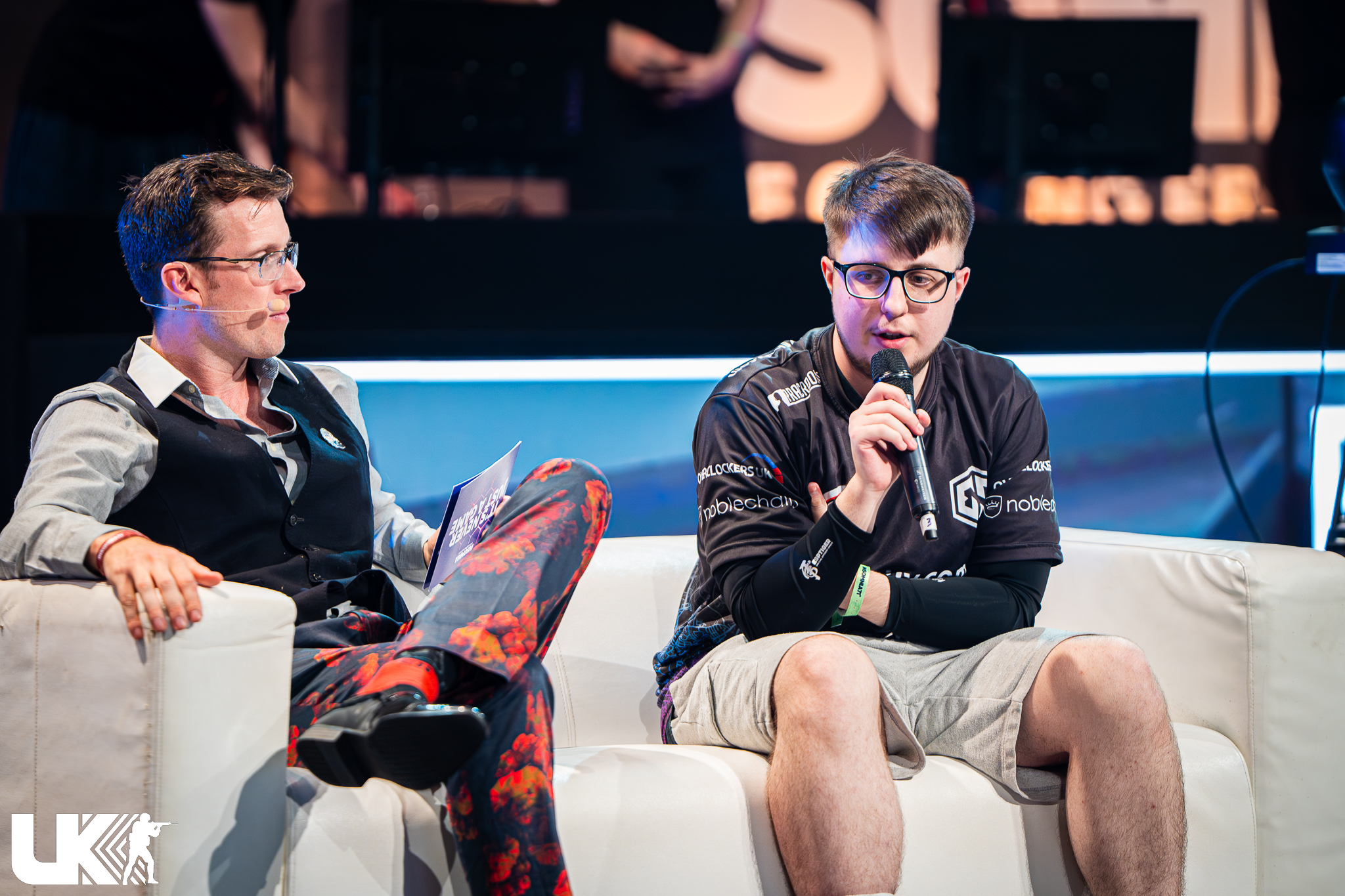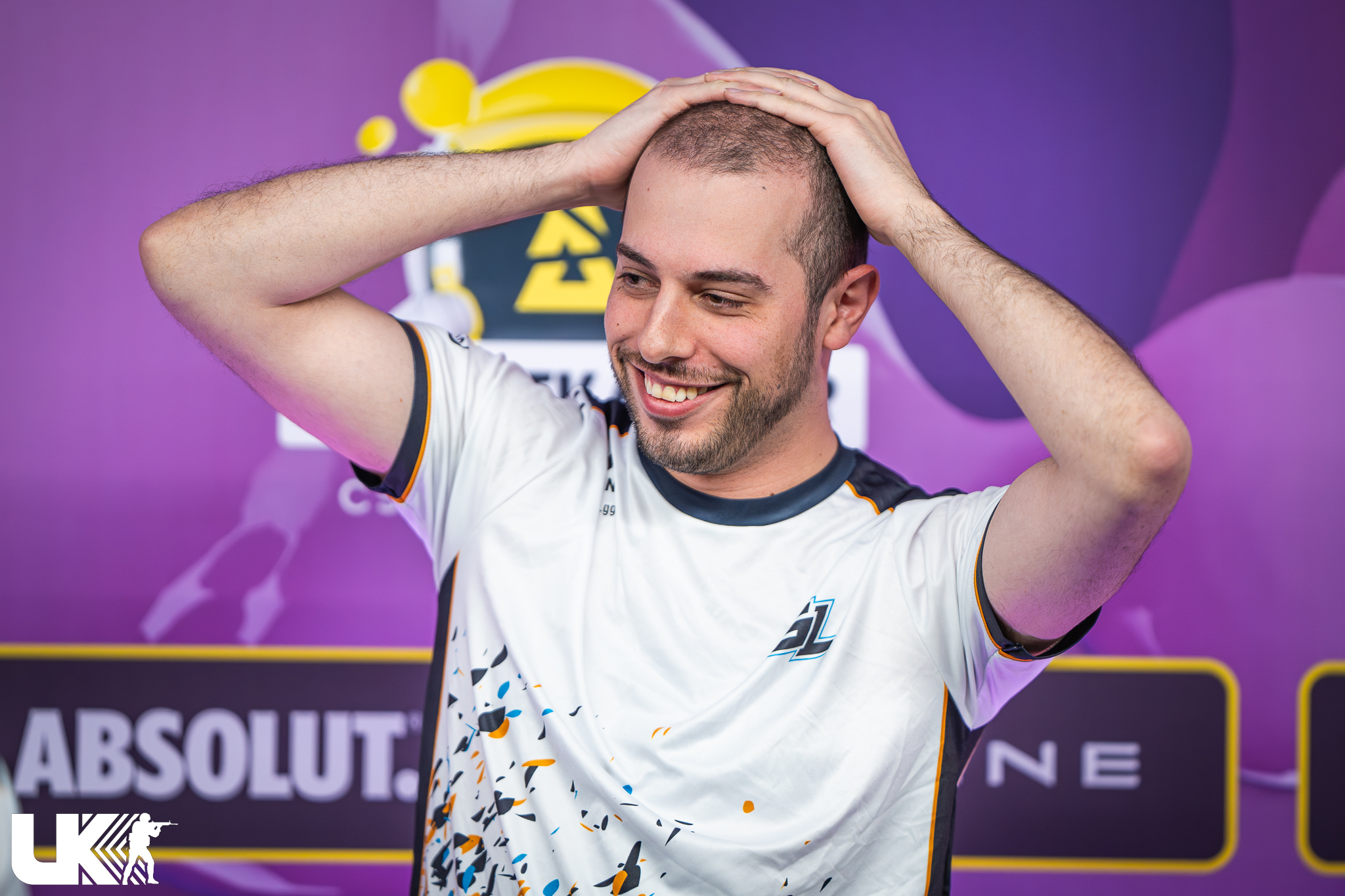Whilst ESL Premiership took place Allan Hender, the head of BCSA, made an appearance to talk to players, organisation owners and everyone involved. Behind the scenes in the build-up to this event, BCSA provided itself as a very useful mediator between the teams and the ESL Premiership. Alongside that, they offered help in regard to the format and timings of the tournament. However, the coming days and weeks for the BCSA dictate the future of the association.
On the Friday of the ESL Premiership, Allan Hender spoke to UKCSGO about their original reason for creation, the active role they take now, and what the future holds for them.
Taking it back to the beginning. What was the reason for the creation of BCSA?
It is really simple. It was my idea initially, and I had it around the end of last year. It was bred from seeing all these twit-longers and the feedback from the events. Mainly looking at players’ opinions from social media on how the events were going, basically from what we, people at the top of the scene had heard. We just thought it didn’t look right, something was wrong. From coaching Endpoint a little bit, I knew about the domestic scene and some of its problems. It just felt like we weren’t going in the right direction. A lot of the feedback from teams and players was not being funnelled in the right way, and changes were not being made. So that was the initial basis, just felt like the scene was in a bad position.
From there I spoke to the people at the top of the scene such as Max “MightyMax” Heath, Ashley “Ash” Battye, and William “mezii” Merriman. From there we created the BCSA board. There were some other people in the mix potentially at that time, but the first point we wanted to hit was, “Let’s get together, professionals in the scene, who had been around a while and really knew what they were doing and have played through the lower levels of the UK scene to act as a meditator for this feedback.”
This is where everything came from, we got to that point and I made the decision that I didn’t want to do anything fast. What we did first was speak to the top eight teams, all the teams that played regularly, that were not mixes and played properly. We got feedback from them, and tried to gauge the current state of the scene and where it’s at, what is right and what is wrong. That was the first part, we then went public. And about the same time, I was getting into conversations with all the TOs. So before actually doing anything I was getting on calls with everybody and just making sure “Where are your events at, what is going wrong from a TO’s perspective? From what isn’t right and what are the players doing wrong.” That was a really important question at the start. Going to ProMod and saying “We see all this rubbish on Twitter, what is a better way for you to get feedback from your events, and what can help you shape the tournament better?”
That was the basis, the feedback wasn’t in a good place, we wanted to be mediators and help that happen, to help in a better manner. We wanted it to not just be about the players and teams, yes they are the vocal points, yes they are the be-all and end-all, there wouldn’t be any competition without them. But also involves the organisations and the TOs, the community to some extent, and the broadcasters, this hasn’t been a big issue currently but could be in the future. Everybody is in the same place and actually has the right conversations, rather than blasting stuff on social media when it’s coming back from the events.

Head of BCSA Allan Hender coaching Endpoint at Antwerp Major 2022 EU RMR
There was a very clear focus on what issues you wanted to tackle when you formed. Is that still similar, or have you been doing other stuff with the BCSA?
Being a mediator is the primary focus at the moment. Certainly in relation to where we are in the ESL Premiership finals, alongside some other events recently. Being the mediator is the #1 thing. Being that middle point between the teams, the player and the people that make the decisions. Just trying to get information over in the right manner. Something that happens a lot is the players or teams will complain about something, or have an issue. But they are not brilliant at explaining why this is an issue, why it should change, or why it is in the TO’s best interest to not do it. This has been a really big focus in a lot of conversations I have with ProMod and ESL, or even EPIC.LAN. I don’t just give them the feedback, I say “This is it at the top level for this reason, players don’t play three BO3s in in day for this reason because it is too straining, it might affect their mental health, it is just not healthy.” All these things a player themselves might not get across.
Certainly being a mediator is the main thing, but there has been some other stuff on the side. But certainty when issues arise, acting as a mediator and trying to get on top of issues for the future. This will be a big focus after the ESL Premiership, we will be trying to lay down more framework for preventing the same issues from happening again.
From my perspective, when I saw BCSA announced I was cautiously optimistic because you are only focusing on the top eight teams. Do you have any involved with others below that in the lower leagues, helping them alongside the top teams? Providing that trickle-down.
It is certainly an aspect that I don’t want to disregard, it is a fact of life that we are going to focus on the main teams, the ones in the biggest tournaments, the ones that have the most traction and most followers. They are always going to be the focus point. That is the reality. Part of the idea of having a Discord server is that anyone can join it, anyone can message me anywhere on Twitter or Discord. The openness is there. We would like to have more involvement with the trickle-down competitions. An aspect of mine is reaching out to the university tournaments to break the ice on that and get on the same page. At the moment I am pretty much working flat out on this stuff, so I am not sure if I can take it on right now. But it is certainly never going to be an aspect where this isn’t a consideration. As you say, everyone comes through this progression path, and if there is a gap anywhere along the road, that is not beneficial to our scene.
You have already said you are trying to branch out to other players. Is there a vision for the future that BCSA want to achieve?
I would say it is taking things bit by bit. There might be potential to go more official and have players under contract to have more leverage. Currently, I am not particularly interested in that. It would be a lot of work and isn’t necessary, just presenting feedback and suggestions in the right manner with the right explanations, and going to the right people will get us a long way. I don’t envision being massive in the future, there might be a case of getting in more people staff-wise to help out. We have some ideas on the backburner, one of those is having a unified calendar, between all domestic events, having both a public and a private one. A private one is just being on the backend before announcements are made to avoid clashes like we had with the Blast Qualifier recently. That is one idea on the back burner, but I’d say that at the moment the primary focus is the tournaments, where we are at with them, and especially the ESL Premiership and what the future of that looks like. I would like to branch into more stuff, but the focus currently is the here and now.
Speaking about the here and now, you most recently had involvement with ESL Premiership and how the event ran. Do you want to break down the impact you had on that and the issues you highlighted and fixed?
In the lead-up to the event, there have been a lot of discussions, more than I could ever have imagined for a single tournament. It has been a lot of work.
From the start, the basis for the whole thing was getting the feedback over in a better manner. For both of the previous ESL Premiership seasons, both Winter last year and Spring this year, we spoke to all the teams on calls after the event. Gathered all the feedback, what went right, what went wrong, and what can be improved upon. Distilling that information down. Especially for the most recent Spring season, we had a seven-page document of feedback. So that was the main thing to that point, was getting over the feedback. This season has been very different. The announcement comes out, it is a big shock, it is much earlier than people expected, and it is in combination with Insomnia which is a huge shock as well. The initial announcement had a lot of problems. It actually hit the teams first. They got invitations to the closed qualifiers and that had a lot of information on what the format was, how the event was expected to play out, and there were a lot of gaps. There were straight-up mistakes, things that couldn’t be achieved in reality. There was a lot of backlash from the teams and the communities when the announcement came out. Everyone enjoyed the idea of it being on LAN, but you could see there were some gaps in the thinking, where actually executing this might be a problem, or it might lead to things that were not good in the scene.
A week after the announcement, MightyMax and I hopped on a call with ProMod, Insomnia and some ESL people to talk through what the problems were and some recommendations on what could be changed. There were quite a lot of tweets in terms of the format. The quarter-finals were brought a day earlier so the players were not expected to play three BO3s in a day. The number of slots in the next season was dropped to four, which we saw in the quarter-finals playing out was a correct move. If those teams had gotten an automatic invite then some teams would have missed out maybe next season. The prize pool was changed. I know there is some bickering about it now, but it was a good chance to offset the cost of playing at Insomnia. A lot of these things happened very fast.
Since then, as issues have come up, where things have looked wrong, or as teams have had grievances about things, I have acted as the middleman between Insomnia and ProMod towards the teams. Trying to get resolutions, this is a very ambitious project, we are working with a lot of different stakeholders, and it is the first time in a while a lot of these people have run a LAN. There were quite a few considerations going into it, making sure that the teams, organisations and community concerns were getting through in the right manner to people who can actually change stuff.
In the lead-up to the event, there have been a lot of discussions, more than I could ever have imagined for a single tournament. It has been a lot of work.

BCSA board member mezii at the Blast.TV Paris Major
From your perspective, do you even think this LAN is a good idea? It has completely changed how ESL Premiership is, all the backlash on Twitter, and a lot of bad publicity from Insomnia and ESL. Are you happy we have changed from a working online version to this LAN format which everyone wanted, but has been executed poorly?
It is the million-dollar question. I really like the idea. The idea of having the ESL Premiership attached to the side of some really big other event. Fundamentally, how are we going to get a venue to play on LAN and enough viewership? Immediately answering those questions limits your options pretty quickly if you want to play it on LAN. I think the idea of using a big expo event and tagging it on the side is a good idea. Even the LCQ qualification, having teams play in a BYOC, getting into the main event. I don’t have a huge problem with that. In the execution of it, I don’t think it was so great, but I don’t have an issue with the overall concept of what it looks like now. I think it is more about how we get to that point, what is the format, what is the qualification route, and does it makes sense for a team to come and try to play in the LCQ. These are really big questions that to be a little bit blunt were not massively considered in terms of putting this together, it was more like “We want CS in the UK back on LAN, a LAN final, how can we make this happen? And then you make the other decision.” Whereas I was not sure this was the best idea, I think this model could work, but it was ambitious and as we can see it is quite polarising on the community as it is happening.
This is all happening now. Do you think this will negatively hurt the scene, or even though this isn’t great now, it is a step in the direction of continuously having a LAN final?
Hypothetically, if this model continues, it should continue to be ProMod working with Insomnia putting on the ESL Premiership finals. It would be to the benefit of having the growing pains to get through it, and I am sure if they were to run the same thing again, they would learn a lot more from this event.
If you want to take that perspective, sure it can be a good thing. But I think on the other hand there is an expectation when if you look at it from an ESL perspective, this feeds into Pro League. This is an important product for them, they have a lot of investing in this, there are good teams playing in this, so there should be good competition. If you look at it from that perspective. The minimum bar we expect to do right should be fairly high. Not on the level of a Pro League or an IEM, but the whole idea of this from an ESL perspective is to be the pathway for a player, a team, or even a viewer to watch the top scene. If at any point that doesn’t reflect the top scene, or there are things that wouldn’t happen at the top level, that isn’t right, it is not breeding the right things in the players, not breeding the right attributes, it is not creating the right things in the community.
To answer your question, I don’t really know. I don’t really know if it will be a positive or a negative thing in the end. If it does retain this system of ProMod and Insomnia running it, it will be to a benefit. Regardless, they could have done a better job with this season.

BCSA board member MigthyMax at ESL Premiership Autumn 2023
Looking at the LCQ, I think it is fair to say it was shocking. We had nine teams sign up, a lot of the teams were casual players who don’t even play CS. Firstly do you think this undermines the whole tournament? And secondly, we saw a lot of people complaining on Twitter, do you think it is in the end, those guys’ fault for complaining but not showing up?
The best way to look at this is to look at the old ESL Premiership LANs which were top four. If you just look at it from that perspective, is it really a huge problem? All we have done is just add an extra series for some of the teams. We still have the best four teams playing in the semi-finals on LAN. If you look at it from that perspective, it isn’t a massive detriment. We haven’t lost anything. In terms of how this has actually played out. The signups were pretty bad and I think Insomnia, ProMod and ESL should all really investigate how they should promote the event, and how they push it on socials, how they try to get signups. Clearly, what formulated wasn’t what they wanted, from an Insomnia perspective they were looking for ways to attract smaller teams as they were having bad turnouts for their own events, they wanted to draw all the teams and get a lot of people involved. Ultimately it hasn’t made a massive amount of difference. I really do think on all levels, the people running ESL Premiership really have to think about how they are promoting it. All of this goes back to the planning cycle, how far ahead are we knowing these things, it all feeds together. Even if you were a team that wanted to play. maybe someone is busy, maybe you cannot organise it in time.
From the perspective of the teams that chose not to come, Insomnia does cost a lot of money, if you are not backed by an org you are taking a risk. We did play a hand in having the prize pool rearranged. It was actually the Endpoint’s idea of all people to make that move. They knew they were sacking their own prize money, but it is because if a team did come, and they were expected to make it through the LCQ, at least they get some money back to offset the costs. The idea makes sense, more teams could have come perhaps. You are playing on a Thursday and a Friday which doesn’t make a gigantic amount of sense for these people who are semi-professional only playing in the evenings around work, trying to get time off work is difficult. All of these things factor in, as well as having a very short gap between the open qualifiers and the main event. Even if you want to come, you have only got two weeks to book it. All these things factor together, and the turnout wasn’t surprising behind the scenes. It was actually more than I expected. The LCQ system could work, but the way it has been done here, especially in regards to the promotion, kind of set it on this path, and no one is really that surprised.

BCSA board member ash at the Blast.TV Paris Major
Finally, looking towards to the future. Is there anything for the future in regards to BCSA that we should be looking out for, and what is next after the ESL Premiership?
This next period and how we react to this event, some of the ups and downs will define what we are as an association.
So the main reason I am here is to speak to everyone, to get everyone on the same page. This next period and how we react to this event, some of the ups and downs will define what we are as an association. I have been speaking to as many of the players as possible, and the orgs as well to get their perspective. How do we react to this, how do we express what we think might be a better route, or would we prefer someone else to run these tournaments, are we happy with the way ProMod have run it and can we just give feedback and say “this is what we want for next season.” These are really important questions and is the biggest question on my mind regarding the association. That is what I am trying to answer today in the here and now. That is the main thing, as I said, there are some other things on the back burner. I would like to build the BCSA into something more, get more people involved, more of a social present which right now is not existent. As we spoke before, there might be value in having more of a public presence even if the big conversations, the things that truly matter are done behind the scenes. Maybe having more of a recognisable face and image would be valuable too. These are all really important questions currently. Definitely, ESL Premiership, how we react to it is the big thing, and that is what we need to figure out today and over the next couple weeks, starting the right conversations and looking forward to the next year and what those tournaments will look like.

